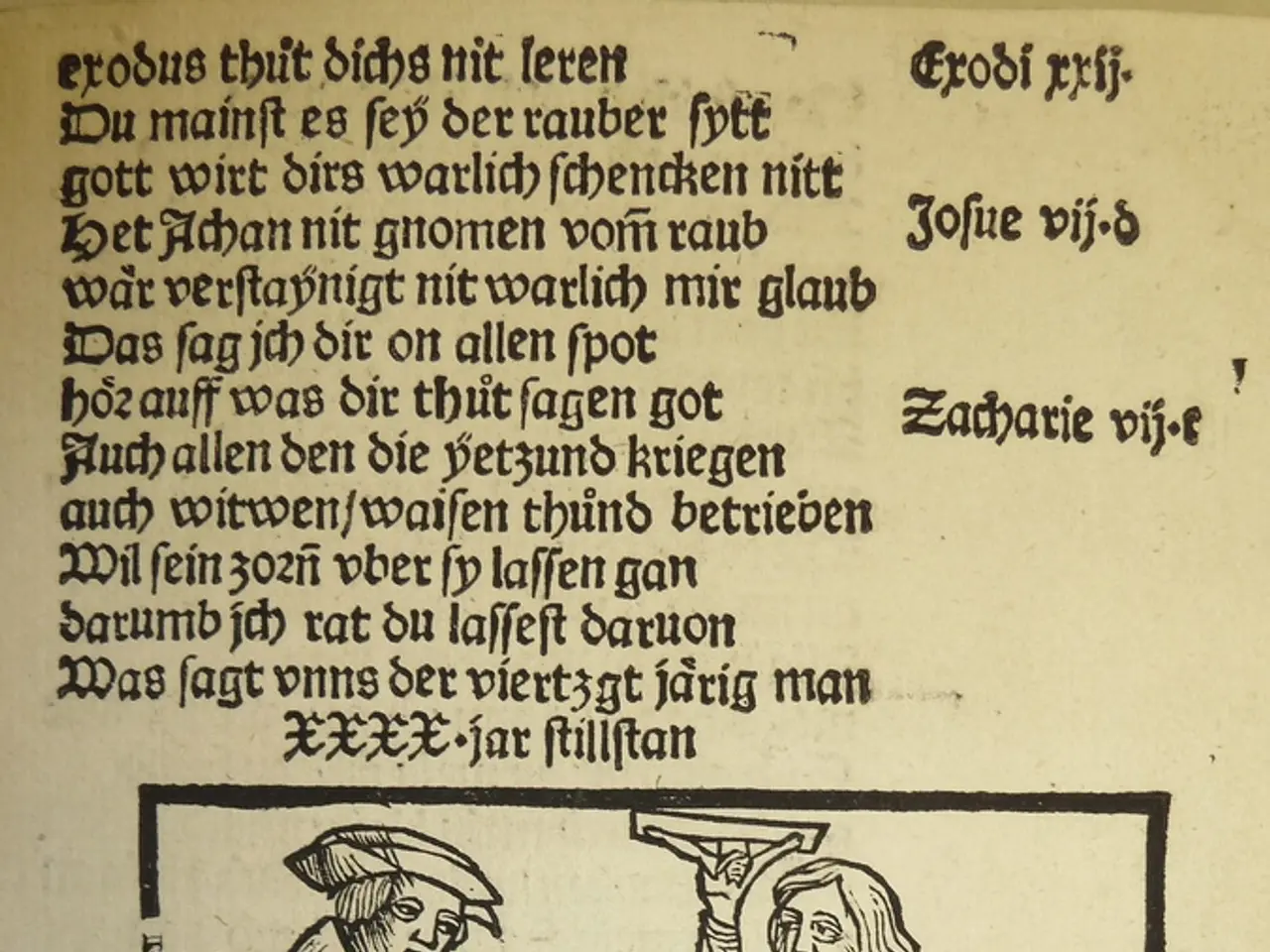Public recipients ought not to receive funding for promoting gender issues
In a move that has sparked heated controversy and opposition, Culture Minister Wolfram Weimer has announced a ban on the use of gender-neutral or gender-inclusive language in official communications within his department. The policy, announced in August 2025, requires that the ministry's approximately 470 employees use traditional German language forms, including standard salutations like "Sehr geehrte Damen und Herren" ("Dear Madam, dear Sir"), instead of gender-neutral options.
Weimer justifies this ban by arguing that forced gendering in language does not reflect the way the majority of people in Germany speak and that it deepens divisions in society. He expressed concern about what he terms a "guaranteed language education" that he sees as divisive and detrimental to the "beauty" of the German language. While restricting official use, Weimer stated that individuals are free to use gender-inclusive language privately.
This move has been met with significant opposition, particularly from Green politicians Sven Lehmann and Misbah Khan. Lehmann, a vocal critic, sees Weimer's actions as an attack on the freedom of art and culture and an attempt to discipline critical voices. Khan, on the other hand, sees an "implicit threat" in Weimer's statements, as he believes that non-compliance could result in the loss of relevant funding.
The German Journalists' Association also opposes Weimer's initiative, stating it interferes with broadcasting freedom. Mika Beuster, DJV chairman, believes it is none of a culture minister's business whether public broadcasters and Deutsche Welle use gender in their contributions.
Weimer's stance on language education is not new. Previously, he rejected any paternalistic language education, believing it deepens a societal divide and does not reflect how the majority in Germany speaks. The federal government also follows this approach, not using words with gender asterisks and adhering to the recommendations of the Council for German Orthography.
The controversy highlights broader societal tensions around gender, identity, and public policy in Germany in 2025. Weimer, a conservative journalist and independent politician, has a background as editor-in-chief of major newspapers and founded Cicero magazine, which positions him ideologically in favor of preserving traditional cultural practices.
In spring 2024, Bavaria followed Weimer's lead with a ban on "gender language with special characters for gender specification" in authorities. Thuringia instructed its state authorities to refrain from "grammatically incorrect gender language" at the end of 2022.
The debate echoes ongoing debates in Germany and other countries about gender, language, and inclusivity. Supporters of gender-inclusive language see it as a necessary measure for recognition and equality, while opponents, including Weimer and those aligned with his conservative stance, argue that the language should adhere to traditional norms and resist perceived ideological imposition.
- The controversy over Culture Minister Wolfram Weimer's ban on gender-neutral language in official communications within his department has drawn criticism from various quarters, such as the Green politicians Sven Lehmann and Misbah Khan, who view it as an attack on the freedom of art and culture, and the German Journalists' Association, which contends that it interferes with broadcasting freedom.
- In a broader societal context, the debate surrounding Weimer's stance on language education reflect broader tensions around gender, identity, and public policy in Germany in 2025, with supporters of gender-inclusive language viewing it as a necessary measure for recognition and equality, while opponents, including Weimer and those aligned with his conservative stance, argue that the language should adhere to traditional norms and resist perceived ideological imposition.








